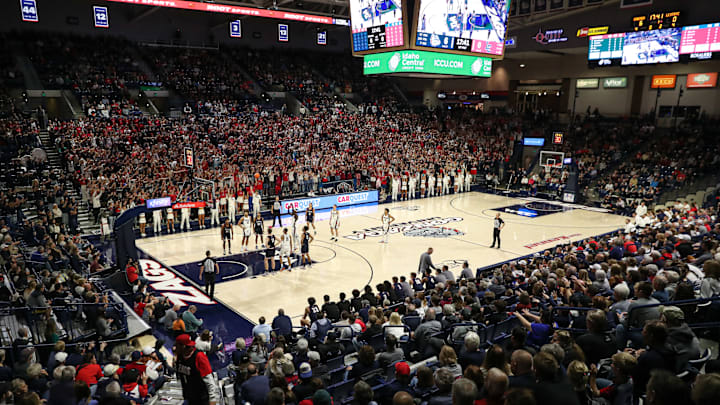Gonzaga AD Chris Standiford discusses reseating for season ticket holders: 'What we do has gotten really expensive'

Chris Standiford doesn’t have much down time in his position as the athletic director of Gonzaga University.
When he was the assistant to former athletic director Mike Roth, Standiford at least had a brief break to look forward to at the end of July, right before student-athletes returned for fall sports in early August.
“That really hasn’t been the case lately,” Standiford said of his time away from work. “The last three years as the athletic director have been not normal in terms of the cadence of college athletics. A lot of change has happened and for whatever reason it seems to happen over the summer period.”
The NCAA approved its first name, image and likeness policy a month before Standiford was promoted to athletic director in August 2021. Since then the NCAA has been drowning in lawsuits; three federal antitrust cases filed against the governing body snowballed into a multi-billion dollar settlement that could forever change amateurism in college sports. If approved — which might take a while to get done — the settlement would see nearly $2.8 billion in back pay go to thousands of current and former student-athletes dating back to 2016.
Also included in the landmark House v. NCAA agreement: revenue-sharing. Schools would be allowed to share 22% of the average annual power conference revenue — an amount that roughly adds up to $22 million annually — with their student-athletes starting in the 2025-26 NCAA calendar year if the settlement is approved. That’s a big if, based on the fact that the federal judge overseeing the settlement decided to hold off on granting it preliminary approval, primarily because it would grant the NCAA power over third-party collectives.
Regardless, college athletics is getting expensive across the board.
“We're on the precipice of revenue sharing,” Standiford said. “We have experienced a lot of economic reality of inflation that is maybe disproportionate to what most people have seen. Different components of what we do have gotten really, really expensive.”
While the NCAA spent the summer with its attorneys, the Gonzaga athletic department was hashing out a plan in preparation for the changes that are sure to rock the college landscape once again.
“This summer we’ve gone through the process of announcing our reseating [for season-ticket holders] and beginning that process,” Standiford said. “Right now, our systems are the same ones that have been in place for 21 years. A lot changes both for us, the industry and for our season ticket holders. We wanted to create a mechanism for people to kind of reassess where they're at with their relationship with Gonzaga.”
The Gonzaga men’s basketball program was not the same as it was two decades ago, no doubt. Mark Few’s Bulldogs have become a marquee brand in the sport due to the team’s annual success in the NCAA Tournament. Over the past quarter-century, the Zags haven’t missed the postseason and have been to two Final Fours amid an active streak of nine straight Sweet 16 appearances.
That said, tickets are in high demand.
“People have been really holding on to [their tickets] tight, and really haven't felt comfortable relinquishing any of those seats to bring new people in,” Standiford said. “And we recognize that as a challenge.
"The other piece to it I think that is equally as important is that we have financial needs. We have financial needs that are in excess of what we've had in the past. I don't ever say we didn't have unmet needs, but the magnitude of it has changed.”
Standiford discussed Gonzaga's reseating process, plus his thoughts on the House v. NCAA settlement, conference realignment and much more, on a new episode of Gonzaga Nation.
WATCH THE FULL EPISODE BELOW:
Produced by Thomas Gallagher.
FOLLOW GONZAGA NATION ON SOCIAL MEDIA
Continue to follow our Gonzaga coverage on social media by liking us on Facebook and by following us on Instagram and Twitter @GonzagaOnSI.
